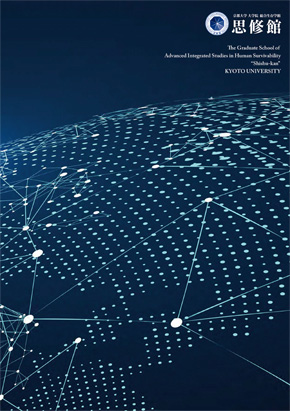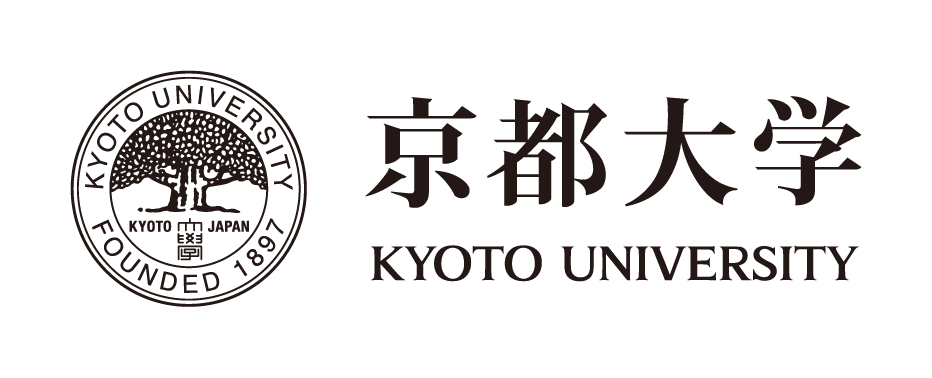International Symposium on the Impact of Climate Change on Food and Agriculture, Kyoto University, 12 June 2017
Kyoto University and the Food and Agriculture Organization (FAO) jointly held the International Symposium on the Impact of Climate Change on Food and Agriculture to mark the one year anniversary of the signing of their Memorandum of Understanding and the 20th anniversary of the Kyoto Protocol. The Symposium took place at Kyoto University on 12 June 2017.
To open the Symposium: Yosuke A. Yamashiki, Professor of Graduate School of Advanced Integrated Studies in Human Survivability (GSAIS), Kyoto University, MoU Focal Point, welcomed the participants;
Professor Eiji Nawata, Dean of Graduate School of Agriculture (GSA), highlighted the importance of working closely with the FAO in advancing agriculture initiatives to counteract the effects of climate change; Professor Kaoru Takara, Dean of GSAIS, Kyoto University, commented on the fruitful cooperation between the United Nations and Kyoto University; Dr. Charles Boliko, Director of the FAO Japan Liaison Office and FAO Focal Point for the MOU shared the successful history of collaboration between Kyoto University and FAO and put forth ideas for future cooperation.
The International Symposium on the Impact of Climate Change on Food and Agriculture began with a special lecture by the Mayor of Kyoto, Daisaku Kadokawa, who introduced ‘environmental action’ and highlighted the role of Kyoto as a city of peace in communion with nature for over 1000 years. The Mayor noted the city’s long standing collaboration with Kyoto University, most notably with Professor Shin-ichi Sakai and Associate Professor Misuzu Asari, leading policy making figures on matters related to food loss and waste reduction.
In her first visit to Japan, Dr. Marcela Villarreal, Director of Office for Partnership, Adovocacy and Capacity Development (OPC) spoke about the FAO Food Policy and Food Loss Reduction Strategy (FLA), aligned with the Sustainable Development Goals. She introduced each country’s food waste initiatives and legislation, along with sharing the Japanese word ‘mottainai’ with the world. She also expressed great expectations from the city of Kyoto as a signer of the Milano Urban Food Policy Pact.
Professor Shin-ichi Sakai, Director of Environment Preservation Research Center introduced long-term strategic approaches and efforts in reducing food and other wastes in Kyoto City. Associate Professor Misuzu Asari, Graduate School of Global Environmental Studies (GSGES), introduced a concrete collaboration with “École de Kyodai” project to reduce food waste. Ayaka Nomura, PhD candidate of GSAIS program, provided interpretation for the Mayor’s speech. She spoke about Kyoto’s food bank activities and raised awareness of the cultural aspect behind food assistance using food waste and its effect on the recipient’s perspective.
During the session on “Global Changes and Available Water Resources” Professor Chieko Umetsu, GSA, introduced Efficient Water Allocation and Cropping Patterns under Climate Uncertainty: The Case of Seyhan River Basin, Turkey. While Associate Professor Kenji Tanaka of the Disaster Prevention Research Institute (DPRI) introduced projections of future changes in available water resources.
The session on “Tropical Agriculture in the Asian Region” by Eiji Nawata, Professor and Dean of GSA, presented the regional estimates of agricultural productivity in the tropics; Professor Tatsuhiko Shiraiwa, GSA, introduced the challenges in soybean production during the monsoon season; and, Dr. Beau Damen, Agricultural Officer, FAO Regional Office for Asia and the Pacific, addressed tropical agriculture and climate change in the Asian Region.
The final session entitled “Crop production and Yield Changes in Association with Climate Change” was delivered by Professor Yasunori Sakai of GSA who covered the effect of the methane cycle on food production promoted by plant-microbe symbiosis. The Session also included “Pollen dispersal and hybridization model for risk assessment of genetically modified crops” by Professor Shigeto Kawashima of GSA; Professor Yosuke A. Yamashiki of GSAIS introduced the application of iGAEZ and Hydro-iGAEZ; and Dr. Hideki Kanamaru, Natural Resources Officer of the FAO Climate and Environment Division, talked about methods to assess climate change impacts on crop yields using MOSAICC.
To conclude, Misako Takahashi, Director, Economic Security Division, Ministry of Foreign Affairs of Japan, recapped the sessions and offered comments on future expectations for collaboration between Kyoto University and FAO. The Dean of GSGES, Shinya Funakawa, officially closed the Symposium.
Participants were then invited to a food event designed to raise awareness of the importance of cooking skills, organized by PhD candidate, Ms Ayaka Nomura, GSAIS. This event was supported by the Research Institute for Humanity and Nature FEAST project, Hoikuryoku-Kenkyujo, Kitchen-Zukan Projects. At the event ‘bricolage cooking’ techniques for food waste reduction were demonstrated and the importance of communal eating was discussed.
Overall, the Symposium was very successful with over 120 participants discussing reducing food waste and sharing experiences and concepts. There was a dynamic exchange of knowledge including research outcomes on climate change and discussions on the long-term conceptual framework for a future global-scale food event associated with the Milan Urban Food Policy Pact to take place in Kyoto in the not-too-distant future.
▼Eiji Nawata, Dean, Graduate School of Agriculture, Kyoto University
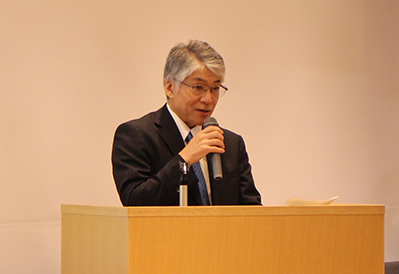
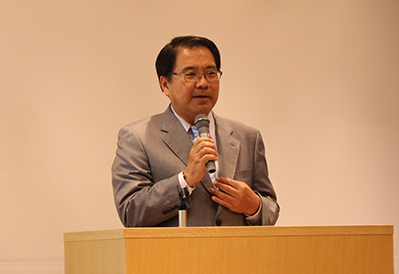
Kaoru Takara, Dean, Graduate School of Advanced Integrated Studies in Human Survivability, Kyoto University▲
▼Boliko, M. Charles, Director, FAO Japan Liaison Office
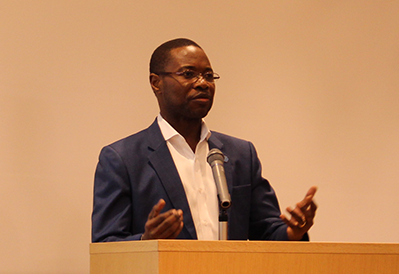
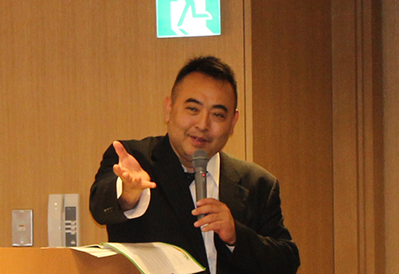
Yosuke A. Yamashiki (MC), Focal Point for Kyoto University, introducing the concept of symposium▲
▼”Toward 50% Reduction of Food Loss in Kyoto City”, Daisaku Kadokawa , Kyoto City Mayor
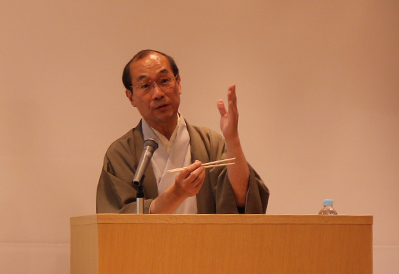
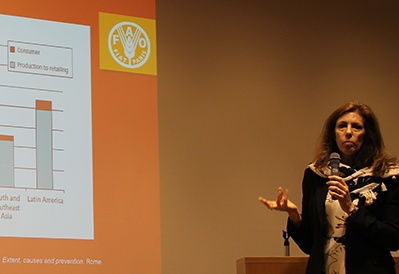
FAO Food Policy and Food Loss Reduction Strategy, Marcela Villarreal, Director, FAO▲
▼Misako Takahashi, Director, Economic Security Division, Ministry of Foreign Affairs of Japan
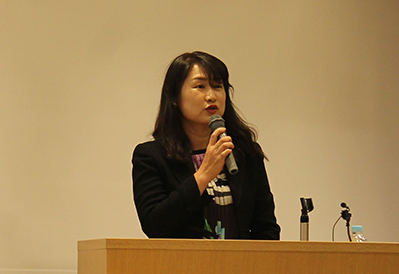
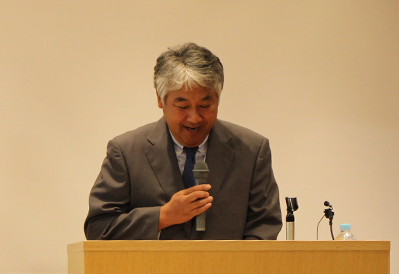
Shinya Funakawa, Dean, Graduate School of Global Environmental Studies, Kyoto University▲
▼Gathering
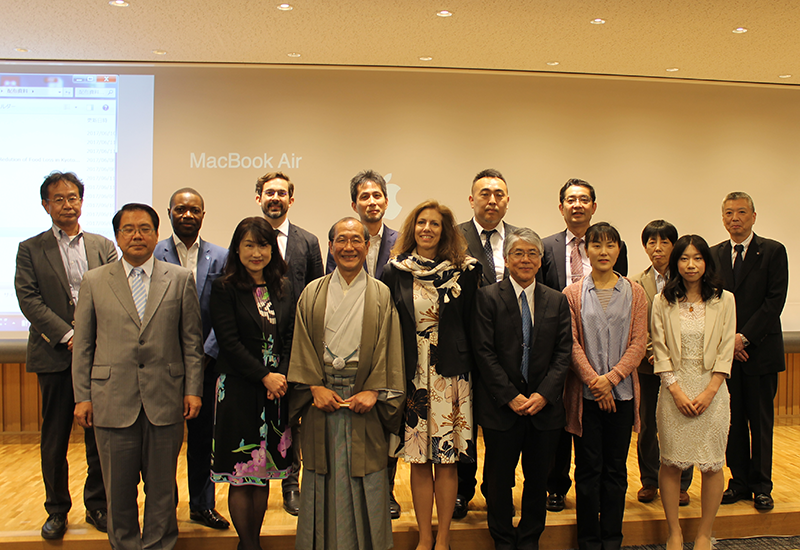
▼FEAST at our Kitchen Event
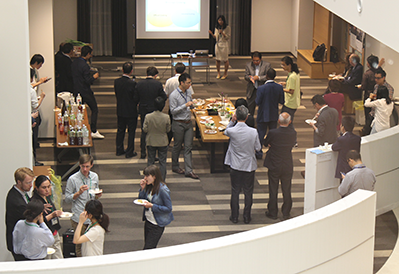
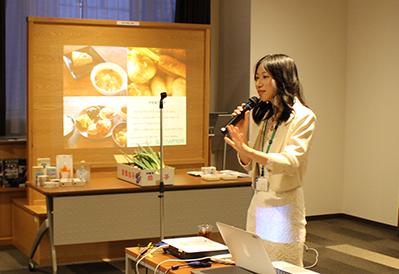
Ayaka Nomura, PhD candidate of GSAIS program(D3), provided interpretation for the Mayor’s speech,
reported on food bank activities in Kyoto city, organised and facilitated “Bricolage Cooking -FEAST at our Kitchen.” ▲


